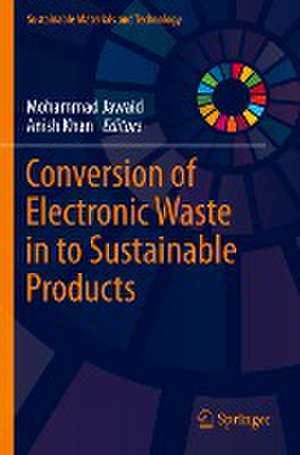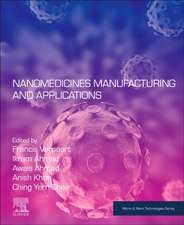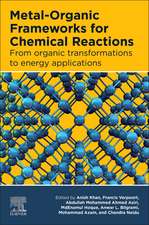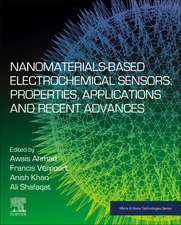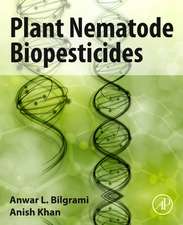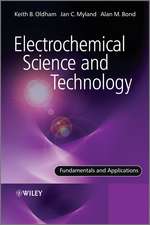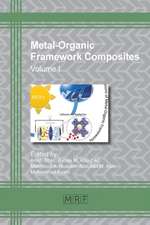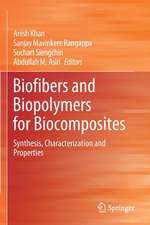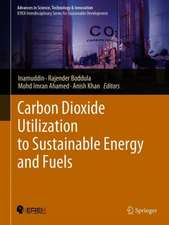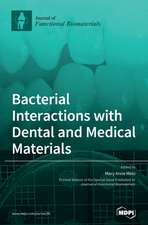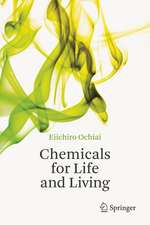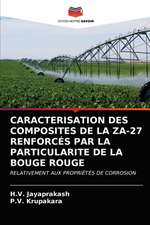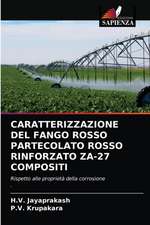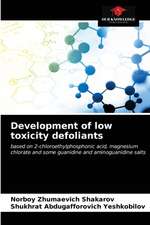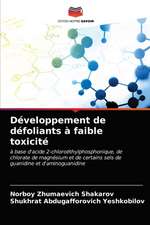Conversion of Electronic Waste in to Sustainable Products: Sustainable Materials and Technology
Editat de Mohammad Jawaid, Anish Khanen Limba Engleză Paperback – 27 oct 2023
| Toate formatele și edițiile | Preț | Express |
|---|---|---|
| Paperback (1) | 1106.79 lei 6-8 săpt. | |
| Springer Nature Singapore – 27 oct 2023 | 1106.79 lei 6-8 săpt. | |
| Hardback (1) | 1112.78 lei 6-8 săpt. | |
| Springer Nature Singapore – 26 oct 2022 | 1112.78 lei 6-8 săpt. |
Preț: 1106.79 lei
Preț vechi: 1349.74 lei
-18% Nou
Puncte Express: 1660
Preț estimativ în valută:
211.81€ • 220.32$ • 174.86£
211.81€ • 220.32$ • 174.86£
Carte tipărită la comandă
Livrare economică 15-29 aprilie
Preluare comenzi: 021 569.72.76
Specificații
ISBN-13: 9789811965432
ISBN-10: 9811965439
Ilustrații: VI, 266 p. 70 illus., 50 illus. in color.
Dimensiuni: 155 x 235 mm
Greutate: 0.39 kg
Ediția:1st ed. 2023
Editura: Springer Nature Singapore
Colecția Springer
Seria Sustainable Materials and Technology
Locul publicării:Singapore, Singapore
ISBN-10: 9811965439
Ilustrații: VI, 266 p. 70 illus., 50 illus. in color.
Dimensiuni: 155 x 235 mm
Greutate: 0.39 kg
Ediția:1st ed. 2023
Editura: Springer Nature Singapore
Colecția Springer
Seria Sustainable Materials and Technology
Locul publicării:Singapore, Singapore
Cuprins
Design of a proper recycling process for small-sized e-waste.- Sustainable bioprospecting of electronic waste via omics-aided biometallurgy.- Diverse Technological Initiatives For E-Waste Management And Its Impact On Ecosystem .- Persistent toxic substances released from uncontrolled e-waste recycling and action for the future.- Overview of e-waste reverse logistics: how to promote the return of electronic waste to the production chain.- E-Plastic Waste Use As Coarse-Aggregate In Concrete.- Recycling of mobile phones: Case study of the lithium-ion cell phone batteries in Brazil.- A bibliometric approach to the current state of the art of risks in e-waste supply chains.- E-Waste Management Strategies across Recycling Industry of Northern India-An Empirical Investigation.- Circular e-waste supply chains’ critical challenges: An introduction and a literature review.- Sustainable Use of Plastic e-Waste with Added Value.
Notă biografică
Dr. Mohammad Jawaid is currently working as Senior Fellow (Professor) at Biocomposite Technology Laboratory, Institute of Tropical Forestry and Forest Products (INTROP), Universiti Putra Malaysia, Serdang, Selangor, Malaysia, and also Visiting Professor at the Department of Chemical Engineering, College of Engineering, King Saud University, Riyadh, Saudi Arabia, since June 2013. Dr. Mohammad Jawaid received his Ph.D. from Universiti Sains Malaysia, Malaysia. He has more than 20 years of experience in teaching, research, and industries. His area of research interests includes hybrid reinforced/filled polymer composites and advance materials. So far, he has published 55 books, 75 chapters, more than 450 peer-reviewed international journal papers, and several published review papers under top 25 hot articles in science direct during 2013–2021. He also obtained 5 Patents and 6 Copyrights. H-index and citation in Scopus are 69 and 21818, and in Google scholar, H-index and citationare 82 and 30002. He is founding Series Editor of Composite Science and Technology Book; Sustainable Materials and Technology, and Smart Nanotechnology, and also Springer Proceedings in Materials from Springer Nature. He is also International Advisory Board Member of Springer Series on Polymer and Composite Materials. He is Reviewer of several high impact ISI journals (200 journals).
Dr. Anish Khan is currently working as Assistant Professor, Chemistry Department, Center of Excellence for Advanced Materials Research (CEAMR), Faculty of Science, King Abdulaziz University, Jeddah, Saudi Arabia. He received his Ph.D. from Aligarh Muslim University, India, in 2010. He has research experience of working in the field of synthetic polymers and organic–inorganic electrically conducting nano-composites. He has completed Postdoctoral in Electroanalytical Chemistry from School of Chemical Sciences, Universiti Sains Malaysia (USM) in 2010–2011. He has research and teaching experience and published more than 100 research papers in referred international journals. He attended more than 20 international conferences/workshop and has published 3 books, 6 in progress, and 12 chapters. He has completed around 20 research projects. He served as Managerial Editor of Chemical and Environmental Research (CER) Journal and Member of American Nano Society. His fields of specialization are polymer nano-composite/cation-exchanger/chemical sensor/microbiosensor/nanotechnology, application of nano-materials in electroanalytical chemistry, material chemistry, ion-exchange chromatography, and electroanalytical chemistry, dealing with the synthesis, characterization (using different analytical techniques) and derivatization of inorganic ion exchanger by the incorporation of electrically conducting polymers, preparation and characterization of hybrid nano-composite materials and their applications, polymeric inorganic cation exchange materials, electrically conducting polymeric, materials, composite material use as sensors, green chemistry by remediation of pollution, heavy metal ion selective membrane electrode, and biosensor on neurotransmitter.
Textul de pe ultima copertă
This book gives an overview of electronic waste (e-waste) management and the latest technological aspects of recycling and disposal of obsolete electronic components while minimizing the environmental impact of toxic chemicals and heavy metals from e-waste. As electronics become more accessible worldwide, this effect generates up to 50 tonnes of e-waste that is only set to increase every year. The chapters in this book explore different strategies through recycling practices, green computing, and eco-friendly approach in handling e-waste through government policies to mitigate the growing side effects of e-waste. This book caters to researchers, policymakers, and industrial practitioners who are interested in more sustainable practices in e-waste management.
Caracteristici
Covers the latest technological advancements in electronic waste (e-waste) management Demonstrates approaches to mitigate environmental effects due to toxic chemical and heavy metals in e-waste Provides a direction for policymakers and industrial practitioners toward a sustainable e-waste management
